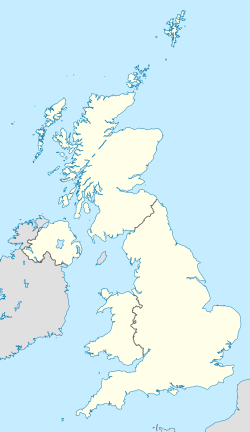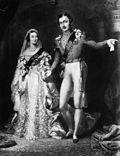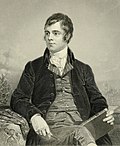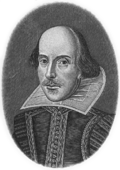Portal:United Kingdom
The United Kingdom Portal
 |
 |

| |
The United Kingdom of Great Britain and Northern Ireland, commonly known as the United Kingdom (UK) or Britain, is a country in Northwestern Europe, off the coast of the continental mainland. It comprises England, Scotland, Wales, and Northern Ireland. The UK includes the island of Great Britain, the north-eastern part of the island of Ireland, and most of the smaller islands within the British Isles, covering 94,354 square miles (244,376 km2). Northern Ireland shares a land border with the Republic of Ireland; otherwise, the United Kingdom is surrounded by the Atlantic Ocean, the North Sea, the English Channel, the Celtic Sea, and the Irish Sea. The UK maintains sovereignty over the British Overseas Territories, which are located across various oceans and seas globally. The United Kingdom had an estimated population of over 68.2 million people in 2023. The capital and largest city of both England and the United Kingdom is London. The cities of Edinburgh, Cardiff, and Belfast are the national capitals of Scotland, Wales, and Northern Ireland, respectively.
The UK has been inhabited continuously since the Neolithic. In AD 43, the Roman conquest of Britain began; the Roman departure was followed by Anglo-Saxon settlement. In 1066, the Normans conquered England. With the end of the Wars of the Roses, the English state stabilised and began to grow in power, resulting by the 16th century in the annexation of Wales, and the establishment of the British Empire. Over the course of the 17th century, the role of the British monarchy was reduced, particularly as a result of the English Civil War. In 1707, the Kingdom of England and the Kingdom of Scotland united under the Treaty of Union to create the Kingdom of Great Britain. In the Georgian era, the office of prime minister became established. The Acts of Union 1800 incorporated the Kingdom of Ireland to create the United Kingdom of Great Britain and Ireland in 1801. Most of Ireland seceded from the UK in 1922 as the Irish Free State, and the Royal and Parliamentary Titles Act 1927 created the present United Kingdom.
The UK became the first industrialised country and was the world's foremost power for the majority of the 19th and early 20th centuries, particularly during the Pax Britannica between 1815 and 1914. The British Empire was the leading economic power for most of the 19th century, a position supported by its agricultural prosperity, its role as a dominant trading nation, a massive industrial capacity, significant technological achievements, and the rise of 19th-century London as the world's principal financial centre. At its height in the 1920s, the British Empire encompassed almost a quarter of the world's landmass and population, and was the largest empire in history. However, its involvement in the First World War and the Second World War damaged Britain's economic power and a global wave of decolonisation led to the independence of most British colonies. (Full article...)
Featured article
Oriel College is the fifth-oldest of the constituent colleges of the University of Oxford in the United Kingdom. Oriel has the distinction of being the oldest royal foundation in Oxford, a title formerly claimed by University College, whose claim of being founded by King Alfred is no longer promoted. The original medieval foundation set up by Adam de Brome, under the patronage of Edward II, was called the House of the Blessed Mary at Oxford. The first design allowed for a Provost and ten Fellows, called 'scholars', and the College remained a small body of graduate Fellows until the sixteenth century, when it started to admit undergraduates. During the English Civil War, Oriel played host to high-ranking members of the King's Oxford Parliament. The College has nearly 40 Fellows, about 300 undergraduates and some 160 graduates, the student body having roughly equal numbers of men and women. Oriel's notable alumni include two Nobel laureates; prominent Fellows have included John Keble and John Henry Newman, founders of the Oxford Movement. As of 2003, the college's estimated financial endowment is £63.5m. (Full article...)
Featured biography
James II became King of England, King of Scots, and King of Ireland on 6 February 1685. He was the last Roman Catholic monarch to reign over the Kingdom of England, Kingdom of Scotland, and Kingdom of Ireland. Some of his subjects distrusted his religious policies and alleged despotism, leading a group of them to depose him in the Revolution of 1688 (the "Glorious Revolution"). He was replaced not by his Roman Catholic son, James Francis Edward, but by his Protestant daughter and son-in-law, Mary II and William III, who became joint rulers in 1689. The belief that James—not William III or Mary II—was the legitimate ruler became known as Jacobitism. James did not himself attempt to return to the Throne, instead living the rest of his life under the protection of King Louis XIV of France. His son James Francis Edward Stuart and his grandson Charles Edward Stuart (Bonnie Prince Charlie) attempted to restore the Jacobite line after James's death, but failed. (Full article...)
General images -
Subportals
WikiProjects
Things you can do
- Visit the British Wikipedians' notice board.
- The noticeboard is the central forum for information and discussion on editing related to the United Kingdom.
- Comment at the British deletion sorting page.
- This page lists deletion discussions on topics relating to the United Kingdom.
Featured pictures
Did you know -

- ... that Oxford is the first city in the United Kingdom to adopt a zero emission zone?
- ... that in Crippled, author Frances Ryan describes a disabled British woman who was unable to afford heating or her specialist meals due to an austerity programme that began in 2010?
- ... that former Scottish Conservative leader Ruth Davidson said that she would swim in Loch Ness naked if the SNP won more than 50 seats at the 2019 United Kingdom general election?
- ... that before Fred Thomas became an MP, he was the Royal Marines' light heavyweight boxing champion?
- ... that South African president Jacob Zuma requested a tour of a Sainsbury's supermarket during his state visit to the United Kingdom in 2010?
- ... that Ed Miliband retweeted "Chaos with Ed Miliband" with a clown emoji during the October 2022 United Kingdom government crisis?
In the news
- 10 April 2025 –
- The United Kingdom's Cabinet Office announces it will cut around 2,100 jobs from its department, about a third of its total workforce, as part of wider government spending cuts. (BBC News)
- 9 April 2025 –
- Universal Destinations & Experiences formally announces that they have chosen a site near Kempston Hardwick in Bedfordshire, England, as the location for their Universal Studios United Kingdom resort. The theme park will officially open in 2031 and will be the largest theme park in the UK upon completion. (AP)
- 7 April 2025 –
- The first birth of a baby in the United Kingdom to a woman with a transplanted womb is announced. The baby girl, delivered at Queen Charlotte's and Chelsea Hospital in London to a 36-year-old woman, is reported to be healthy. (BBC News)
- 5 April 2025 – Tariffs in the second Trump administration, Executive orders in the second presidency of Donald Trump
- UK-based multinational car manufacturer Jaguar Land Rover suspends vehicle exports to the United States for a month to evaluate the impact of Trump's tariffs on the automotive industry. (Fox Business)
- 5 April 2025 – Israel–United Kingdom relations
- Israel blocks two British Labour Party MPs from entering the country. (Reuters)
- 3 April 2025 – Tariffs in the second Trump administration
- A 25% tariff on all automotive imports into the United States enters force. No exemptions are announced despite requests from several major trade partners, including Japan and the United Kingdom. (Reuters)
Categories
Other UK-connected Wikipedias
Wikimedia
The following Wikimedia Foundation sister projects provide more on this subject:
-
Commons
Free media repository -
Wikibooks
Free textbooks and manuals -
Wikidata
Free knowledge base -
Wikinews
Free-content news -
Wikiquote
Collection of quotations -
Wikisource
Free-content library -
Wikiversity
Free learning tools -
Wikivoyage
Free travel guide -
Wiktionary
Dictionary and thesaurus

























































































































